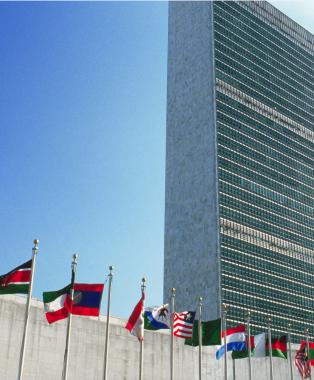The Roland Berger Trend Compendium 2050 covers six megatrends shaping the world between now and 2050.


Empowering Europe through a strong parliament
By David Born and Christian Krys
Voters across Europe show more positive attitudes towards the EU, at the same time parties critical of the EU might increase their share of seats
Strong European institutions are crucial for liberal democracy and economic prosperity throughout the continent. Among these institutions, the European Parliament holds a critical position, serving as the bedrock of representative democracy within the European Union. As the sole institution directly elected by the populace since 1979, the European Parliament serves as a co-legislator alongside the Council. This gives the parliament significant powers to adopt and amend legislative proposals from the European Commission and decide on the EU budget. Over the years, the Parliament's powers have gradually increased.

Against this trend, voter participation in European Parliament elections witnessed a consistent decline from 1979 to 2014. However, the 2019 elections broke this pattern with a significant uptick in voter turnout, primarily driven by the engagement of young voters. The forthcoming European Parliament elections, scheduled for June 6 to 9th, present a vital opportunity for European citizens to decide on the future path of the Union. Current polling suggests that turnout this year might be even higher than in 2019.
This aligns with a gradual shift towards more favorable perceptions of the EU. Recent trends indicate a subtle yet positive change in voter sentiment towards the EU compared to past election cycles. The Eurobarometer survey reveals an increase in the number of participants who believe the EU is moving in the right direction, climbing from 28% in 2019 to 32% in 2024. During the same period, there's been a noticeable rise in individuals recognizing the EU's positive impact on their countries and acknowledging the European Parliament's crucial role in promoting this progress.
"The forthcoming European Parliament elections, scheduled for June 6 to 9th, present a vital opportunity for European citizens to decide on the future path of the Union."
However, there is a notable concern that parties critical of the EU may garner increased support in the forthcoming election. According to projections by the European Council on Foreign Relations, parties on both ends of the political spectrum, which hold a critical view of the EU, may increase their share of seats from 30% to 37% in the total assembly. This shift will most likely have policy implications as common European rules might be more difficult to pass.
What is crucial now is to engage constructively with voters on the anti-European end of the political spectrum. Fostering a culture of open dialogue and communication across political divides is central in a landscape where European party systems are increasingly fragmented and polarized. Engaging in debate and maintaining open channels of communication are vital components in safeguarding the principles of our liberal democracy.




